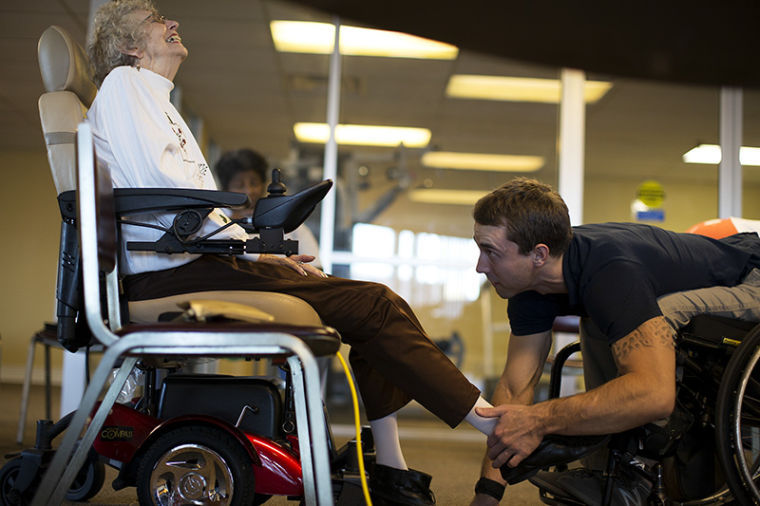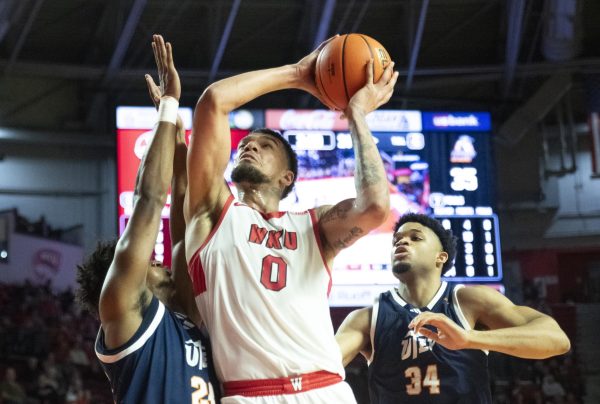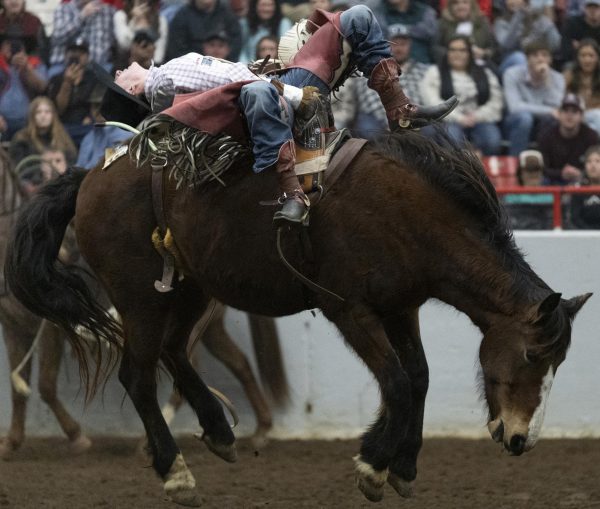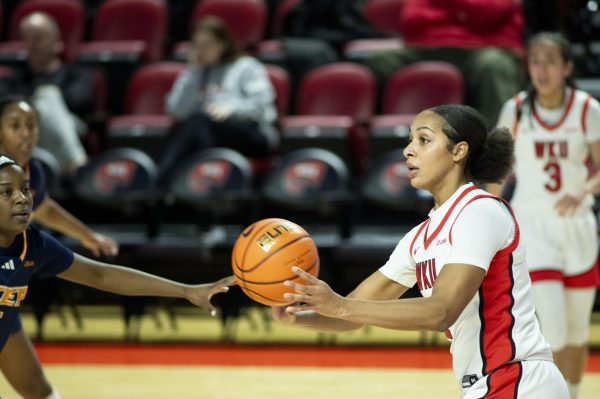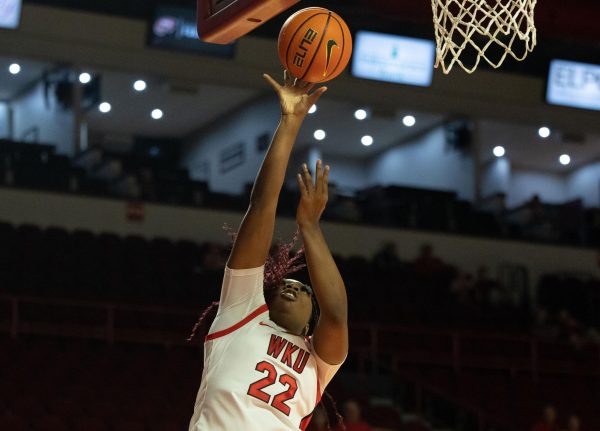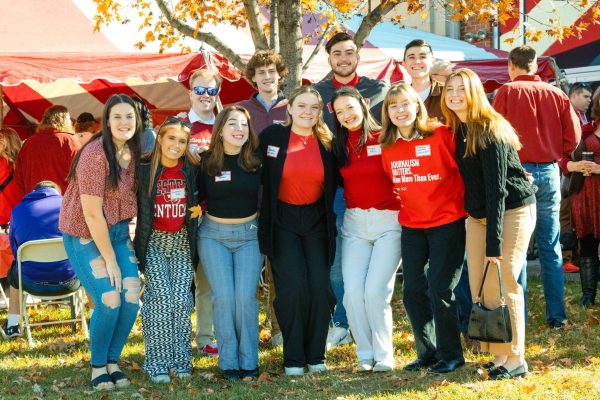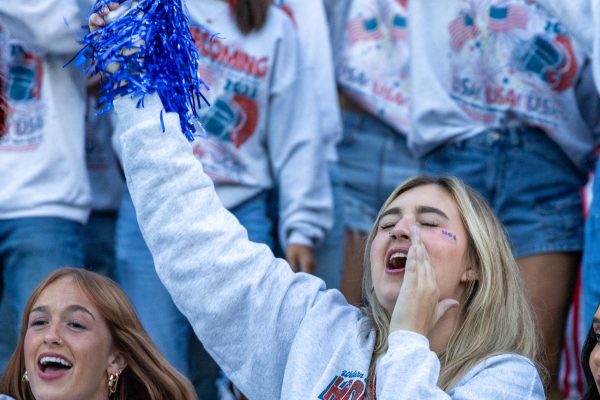Students run ‘Bingocize’ class
November 14, 2013
In the fall of 2011, an assistant professor at Kentucky Wesleyan College in Owensboro told students in his exercise science class to start a program at a local retirement home. The students made flyers but no one showed up. Their exercise program was competing with — and losing to — a bingo game that happened at the same time.
The professor, Jason Crandall, who is now an assistant professor in the department of Kinesiology at WKU, encouraged his students to work around the setback.
The solution: combine bingo and exercise.
After the students devised a program that incorporated bingo into a workout routine, around 15 people attended their first workout.
Thus, Bingocize was born.
Crandall has since turned Bingocize into service learning for his students. Running the program at six retirement homes across Bowling Green counts for part of his exercise science students’ grade.
Bingocize exercises are basic and usually incorporate resistance bands. The group plays a few rolls of bingo and then does some reps. They work on basic compound isolation exercise, focusing on strength, flexibility and mobility.
Crandall said most of his students are interested in pursuing careers as physical therapists. He believes Bingocize will help students in the long run.
“This gives students skills working with older adults,” Crandall said.
Bingocize has grown in size, extending beyond where it began in Owensboro and now concentrated in Bowling Green.
Crandall turned Bingocize into a research study and submitted his findings to the U.S. Health and Human Services Administration on Aging, or AOA. In February, Bingocize met the AOA’s minimal level criteria for evidence-based disease prevention and health promotion program.
Bingocize is promoted on the AOA’s website, allowing the program to be implemented elsewhere in the country.
WKU is currently copyrighting the program and began marketing Bingocize last year.
“Someone from Indianapolis is coming here to be trained so she can take Bingocize with her and train other people at her facility,” Crandall said.
They’re also selling manuals of Bingocize training. Through selling manuals, the activity has reached as far as California, Tennessee and Massachusetts.
Crandall lets his students run their Bingocize programs each week.
“They’re trying to build relationships with the adults, so they don’t rotate to different locations,” he said.
The responses from both students and participants have all been positive.
Donovan Jackson is a senior exercise science major from Goodlettsville, Tenn., in Crandall’s Exercise Science 455 class. Jackson is part of the Bingocize team at the Bowling Green Towers. He said he recognizes the experience he’s receiving from the program and is grateful to have a smaller attendance in his group.
“I need this experience,” Jackson said. “I’ll be working with kids, teens and older adults. This is preparing me for that.”
Although he was initially nervous about exercising with elderly people, Jackson has noted improvement in their ability to complete the workouts.
LaWanda Bellamy Whitlow is 57 years old and has attended Bingocize three weeks in a row.
She’s already seen improvement in her ability to do the exercises each week.
“It’s benefitted and motivated me to start walking every morning,” Whitlow said. “I will start doing the exercises by myself every day.”

